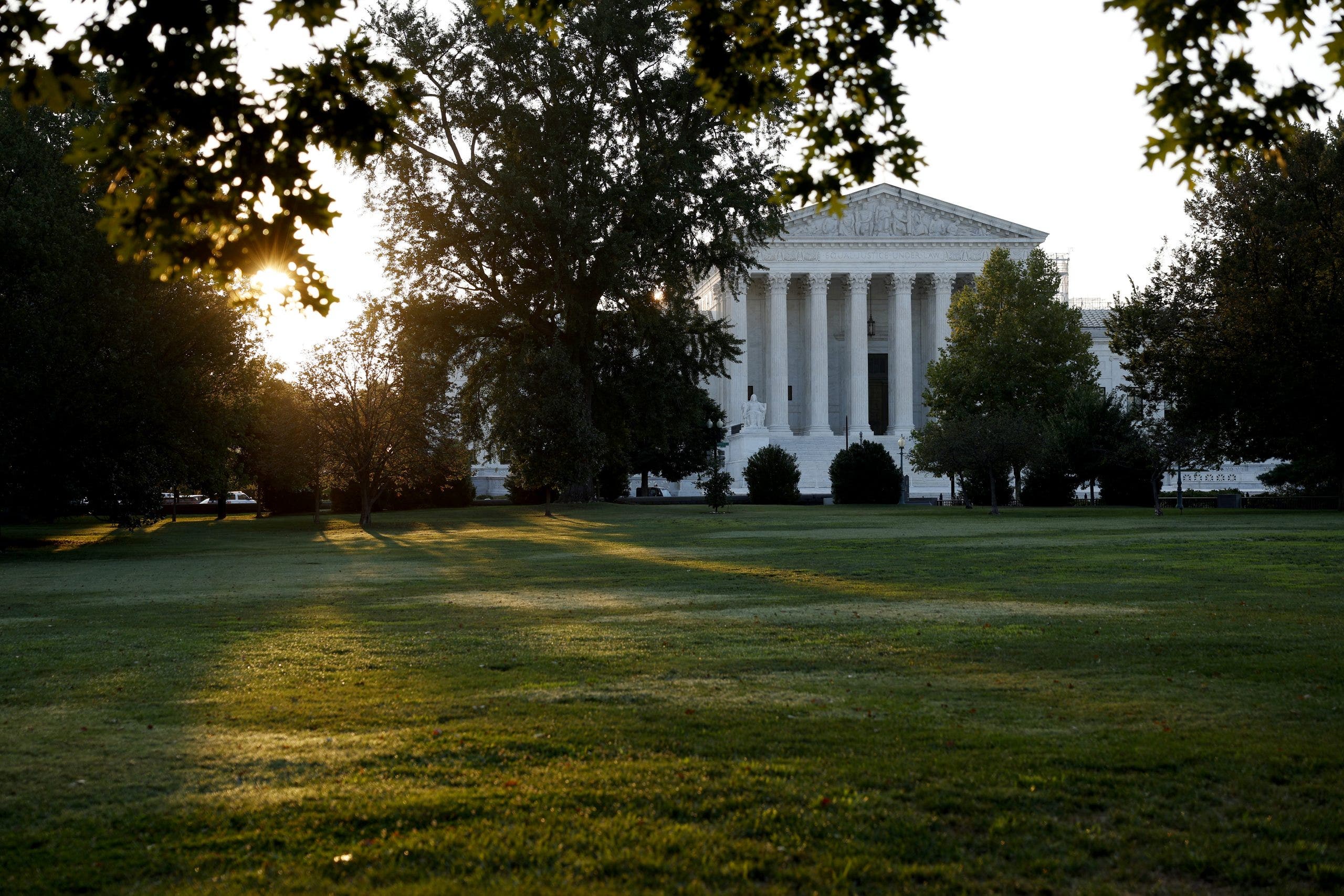The Supreme Court temporarily suspends a lower court decision requiring the reinstatement of 1,600 voters in Virginia's voter registry.
Thousands on the state's voter rolls will be affected by the ruling.

On Wednesday, the Supreme Court agreed to hear an emergency appeal from Virginia to temporarily halt a federal judge's order to reinstate hundreds of potential noncitizens to the state's voter rolls.
Gov. Glenn Youngkin's decision to uphold Virginia's voter ID law is a victory, coming after the state filed an emergency appeal to the Supreme Court to halt a lower court decision ordering it to restore the names of some 1,600 individuals to its voter rolls.
The main issue in the case is whether Virginia's voter removal process violates the quiet period under the National Voter Registration Act (NVRA) or the federal law that mandates states to pause all systematic voter roll maintenance for 90 days prior to a federal election.
The Department of Justice, which filed a lawsuit against Virginia over its removal program earlier this month, clashed with Governor Glenn Youngkin, who maintained that the state's process is personalized and complies with state and federal law.
The court's decision, which is expected to be announced just days before the election, will be closely scrutinized.

In August, Virginia implemented a voter roll maintenance program that compared the state Department of Motor Vehicles' list of self-identified noncitizens with its list of registered voters. As a result, individuals without citizenship were flagged and informed that their voter registration would be canceled unless they could prove their citizenship within 14 days.
The Justice Department contended that the removals were carried out too near the November 5 elections and breached the NVRA's quiet period provision, which was upheld by a U.S. judge in Alexandria. As a result, the judge ordered Virginia to halt its removals and reinstatement of the registrations of the 1,600 individuals who were removed.
The Justice Department raised concerns in their lawsuit that eligible voters may have been mistakenly removed from the rolls without sufficient notice or time to rectify the error.
In the state's petition to the Supreme Court, Virginia Attorney General Jason S. Miyares opposed the lawsuit and court ruling on several grounds. He contended that the NVRA does not apply to "self-identified noncitizens" in the state, adopting a more limited interpretation of the law than the Justice Department. This interpretation, he argued, could render the primary basis for the lawsuit ineffective.
He contended that even if the NVRA applies, the state's process of removing voters is still individualized and carried out by the Department of Motor Vehicles and local registration offices.
On Monday, attorneys general from 27 Republican-led states, including Virginia, filed an amicus brief to the Supreme Court, supporting the court's assertion that the removal program was conducted on an "individualized" basis and arguing that the Justice Department's interpretation of the protections granted under NVRA is too broad and does not apply to noncitizens.

Attorneys requested the court to grant Virginia's emergency motion and "revert to the previous state," stating that this action would "adhere to the law and allow Virginia to guarantee that noncitizens do not participate in the upcoming election."
"The people of Virginia have decided that noncitizens are not permitted to vote, and this Court should reject Respondents' attempt to alter the rules during the game and maintain the status quo ante."
politics
You might also like
- California enclave announces it will cooperate with immigration officials and the Trump administration.
- Danish lawmaker urges Trump to abandon Greenland acquisition plan.
- Now, the Dem who labeled Trump an "existential threat to democracy" is obstructing his nominees.
- The lawyer for Hegseth criticizes the "dubious and inaccurate" testimony of his ex-sister-in-law.
- The House GOP outlines a plan to improve the healthcare system, emphasizing its impact on national defense.



















